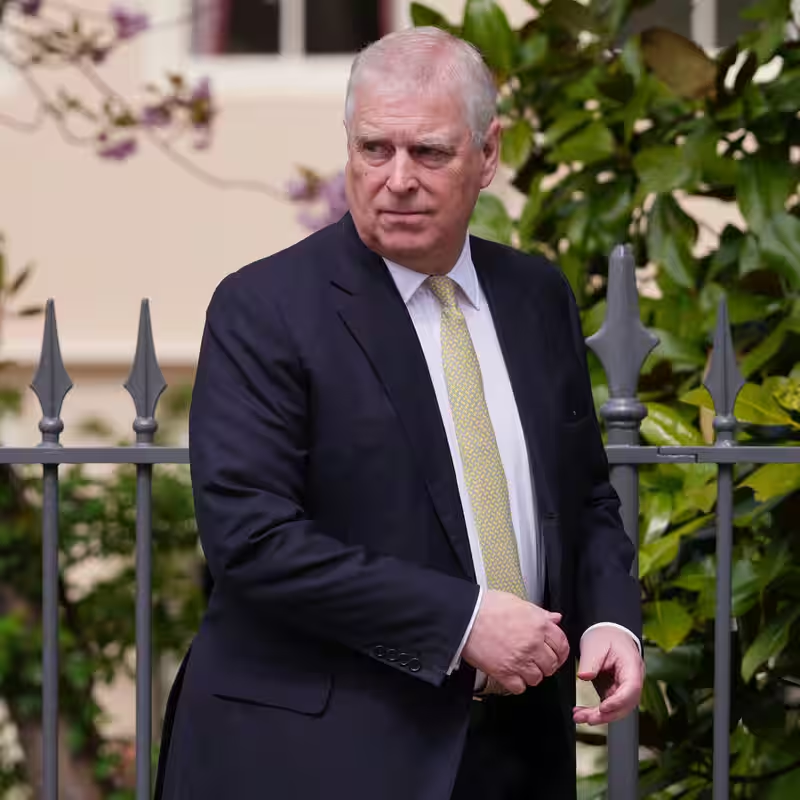Table of Contents
- A Royal Fall from Grace
- Deepening Epstein Ties
- Giuffre’s Final Accusations
- China Connections and National Security
- Isolation Within the Royal Family
- Public Opinion and the Monarchy’s Future
- Sources
A Royal Fall from Grace
Once a celebrated war hero and prominent royal figure, Prince Andrew has officially relinquished his title as Duke of York—a move that marks the latest and perhaps most symbolic chapter in his dramatic descent from public favor.
At 65, the prince now lives in near-total isolation on the Windsor estate, stripped of military honors, royal duties, and even family gatherings. Buckingham Palace confirmed he will not attend the royal Christmas celebration, signaling his complete estrangement from King Charles III and the future monarch, Prince William.
Prince Andrew’s Epstein Ties Resurface
The catalyst for this latest blow stems from renewed scrutiny over Andrew’s long-standing relationship with convicted sex offender Jeffrey Epstein. Despite claiming in a 2019 BBC interview that he had cut all ties with Epstein after 2010, newly leaked emails suggest otherwise.
According to The Mail on Sunday and The Sun on Sunday, a 2011 message from Andrew to Epstein read: “We are in this together.” Though The New York Times has not independently verified the email, its existence undermines the prince’s prior public statements and deepens public skepticism.
Giuffre’s Final Accusations
Adding fuel to the fire is the posthumous memoir of Virginia Roberts Giuffre, Nobody’s Girl, set for U.S. release next Tuesday. Giuffre, who died by suicide in April 2025, detailed harrowing allegations against Andrew, including claims of sexual abuse when she was a minor.
In one particularly disturbing passage excerpted in British media, she described Andrew’s alleged fixation on her feet during an encounter. Her family called his title surrender “vindication for our sister and survivors everywhere.”
Andrew continues to deny all accusations, stating in a brief Friday release: “I vigorously deny the accusations against me.”
China Connections Raise National Security Concerns
Beyond the Epstein scandal, Andrew has also been entangled in a separate controversy involving Chinese officials. Court documents cited by The Times of London and The Daily Telegraph reveal multiple meetings between the prince and Cai Qi, a senior Chinese official close to President Xi Jinping.
More troubling, a 2021 document recovered from the phone of Yang Tengbo—a man barred from the UK on national security grounds—suggested Andrew was “in a desperate situation and will grab onto anything” regarding business opportunities in China.
The prince claims he ended all contact with Yang after government warnings, but the episode has further eroded trust in his judgment and loyalty.
Isolation Within the Royal Family
While Queen Elizabeth II once shielded her son—reportedly helping fund his 2022 settlement with Giuffre—her death in September 2022 left Andrew without his last powerful ally.
Since then, the palace has distanced itself entirely. In 2022, he was stripped of honorary military titles and the HRH style. Now, losing the Duke of York title—a historic designation traditionally held by the monarch’s second son—represents a near-total erasure of his public identity.
Public Opinion and the Monarchy’s Future
Royal historian Ed Owens notes that the monarchy’s swift action reflects growing public unease. Support for the institution has steadily declined: only 54% of Britons now consider it “very” or “quite important,” down from 86% in 1983.
“The pressure on the monarchy to ostracize Andrew simply became too much,” Owens said. With King Charles and Prince William keen to modernize and stabilize the crown’s image, Andrew’s continued presence—even in the shadows—posed an unacceptable risk.




